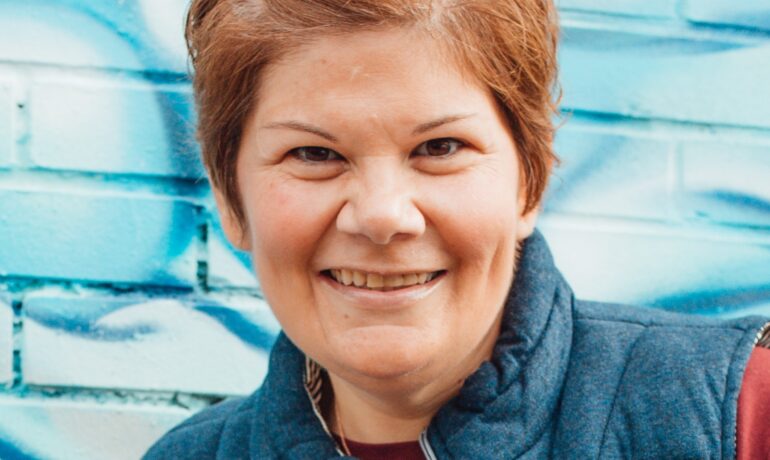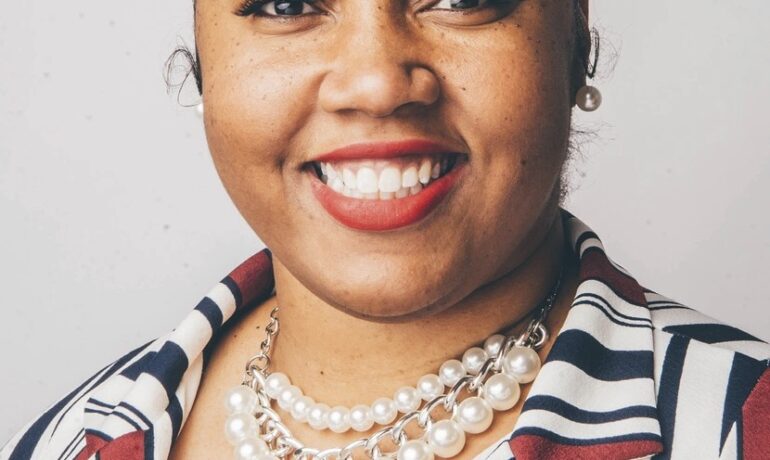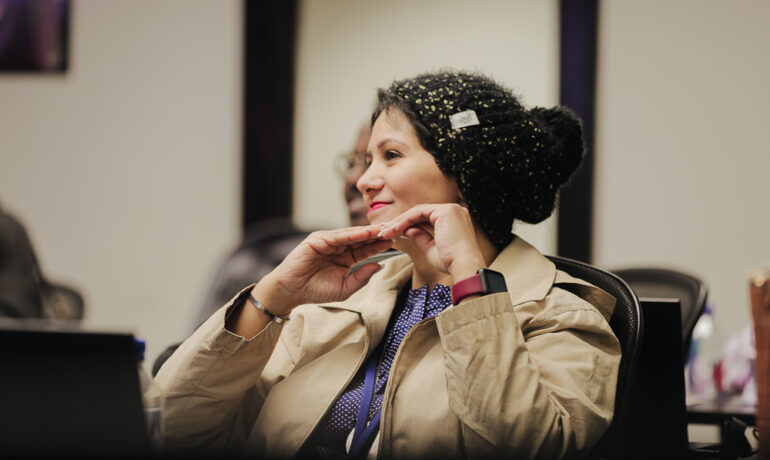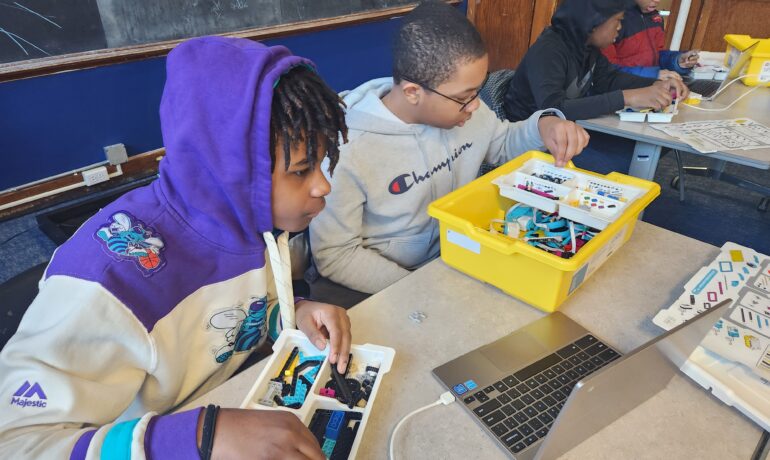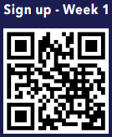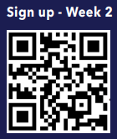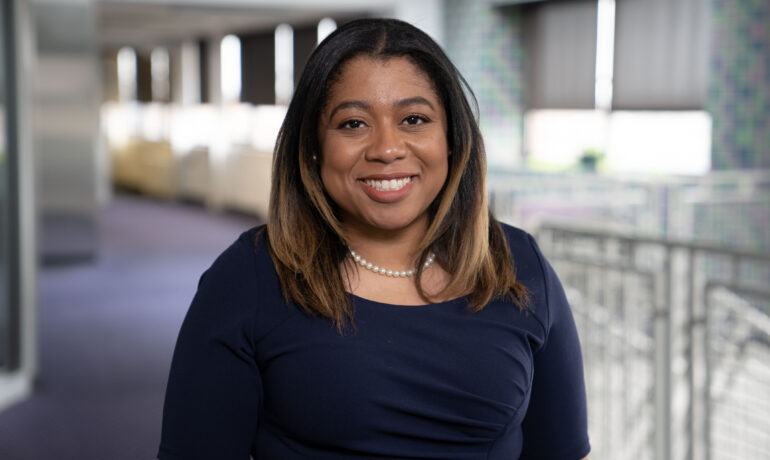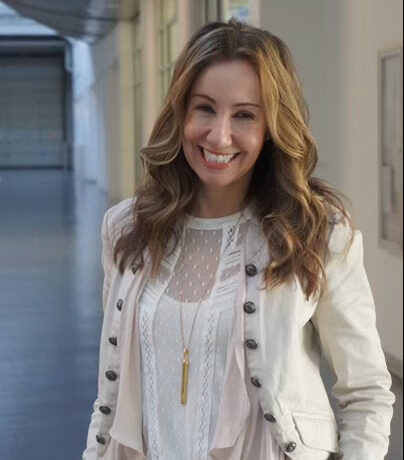Meet Myla Chapman, your Connect 313 District 4 Community Ambassador
Meet Myla Chapman, your Connect 313 District 4 Community Ambassador
Myla’s neighborhood home base is at the Eastside Community Network (ECN), which has served Detroit’s eastside since 1984 and driven positive transformation among that community’s residents and businesses. Formerly the Warren Conner Development Coalition, the people at ECN have worked tirelessly to develop programs and resources that center the needs of eastside residents and amplify their voices to drive development within their communities. You can find Myla and the ECN at 4401 Conner Street, Detroit, 48215 or by visiting ecn-detroit.org.
Read on to learn more about Myla, your District 4 Community Ambassador.
C313: Tell us about District 4 and what makes it special?
It’s a well-kept secret that District 4 is vibrant and resilient. Residents are welcoming and provide the warmest hospitality while appreciating their fun.
C313: How do you describe your work with Connect 313 to your family and friends?
I tell folks in my family and the community that as a Connect 313 Community Ambassador, my role is to advocate for Detroit residents by bringing them accessible and affordable digital resources and technical support. I stay updated on the latest technology and help district residents achieve digital literacy, find appropriate devices and learn how they can empower themselves through technology.
C313: Why do you love being a community ambassador?
I enjoy the different cultures and environments in District 4 and collaborating with organizations and community residents there. My role offers a unique perspective because I’m a Detroit resident on the westside advocating for the eastside while representing my city. Being a Community Ambassador allows me to be adaptable, spontaneous, independent and innovative while meeting people where they are.
C313: Tell us one surprising fact about yourself?
I was born on Friday the 13th at Henry Ford Hospital, and my birthday in 2024 falls on Friday, December 13, the month I was born.
C313: Favorite thing about Detroit?
My favorite thing about Detroit is the people. We are resilient and stylish, and get the job done with flair and grace. Also, I love Belle Isle, which is one of my favorite places. It’s unique, peaceful and serene and brings Detroiters together to have a good time and engage as a community.

- Become a Connect 313 member here
- Help close Detroit’s digital divide: donate today
- Follow us on Facebook and LinkedIn

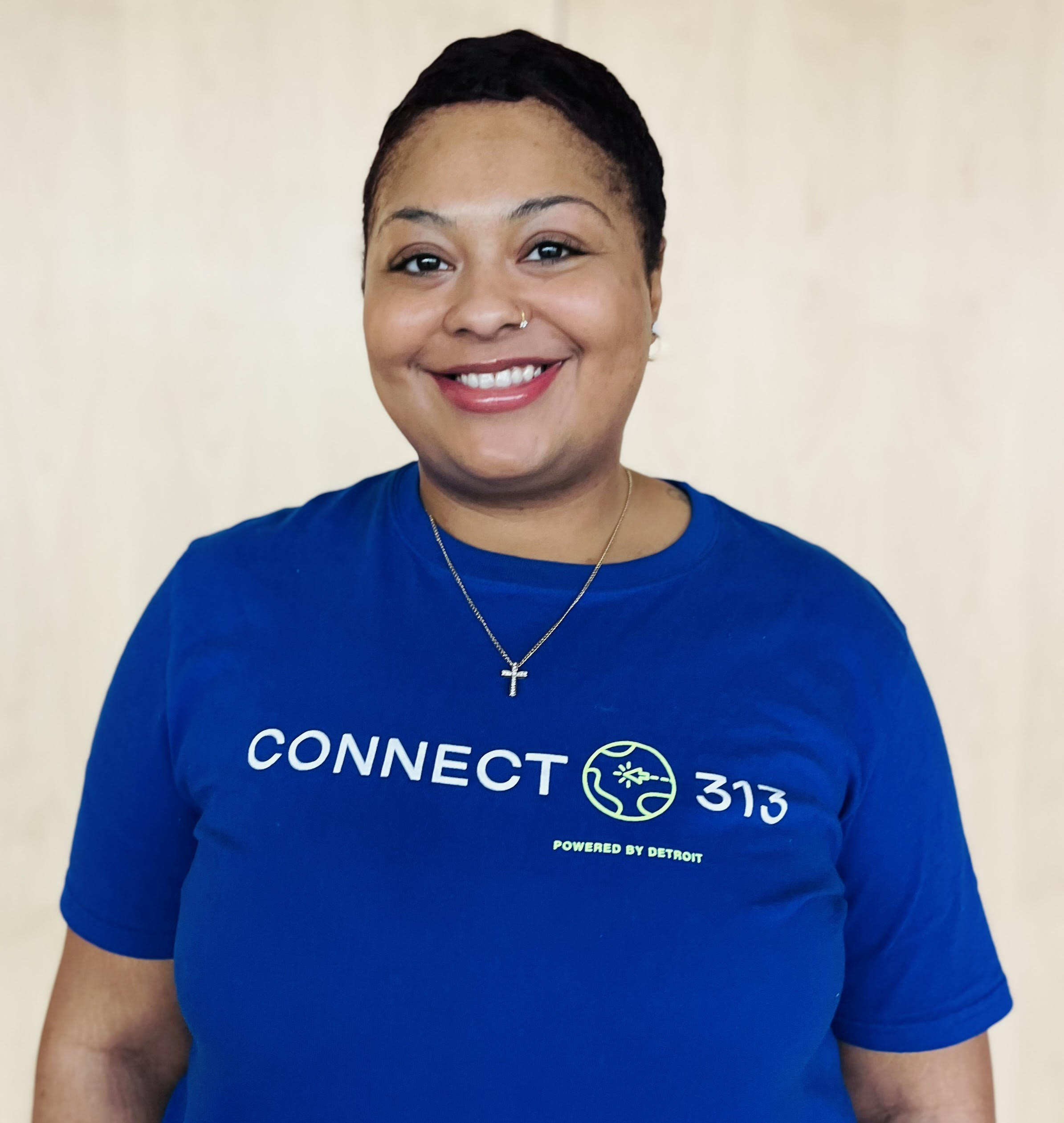
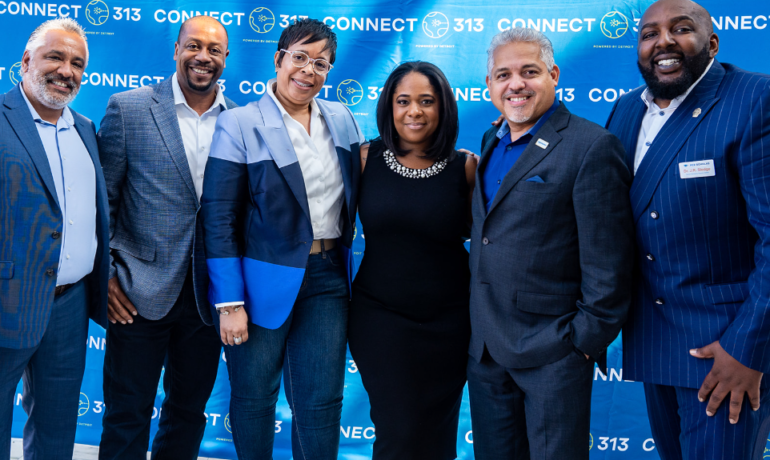
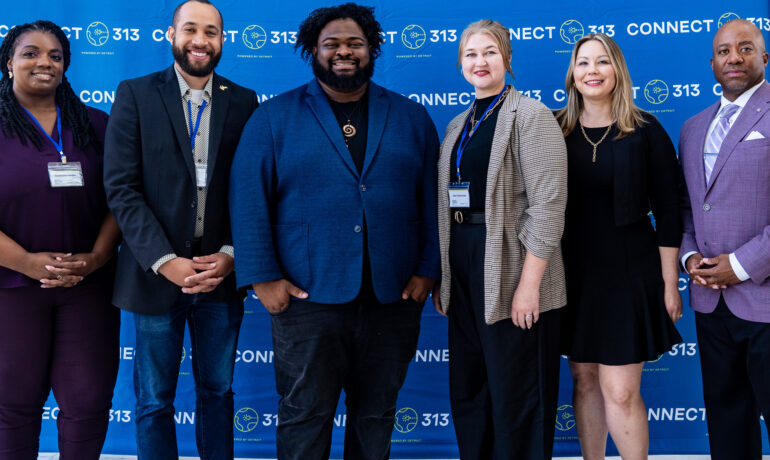
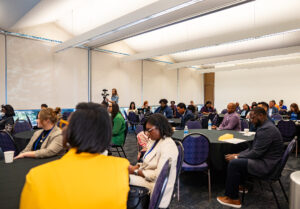 “Closing the digital divide in Michigan appears different depending on where you are in the state,” said Allie Herkenroder, Michigan’s digital equity director. “We can’t just put a one-size-fits-all solution everywhere and have it work.”
“Closing the digital divide in Michigan appears different depending on where you are in the state,” said Allie Herkenroder, Michigan’s digital equity director. “We can’t just put a one-size-fits-all solution everywhere and have it work.”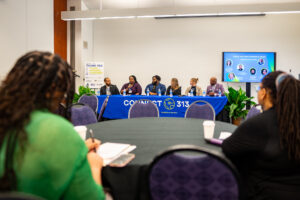 Finally, the five panelists agreed that as with any complex issuethe best place to find a solution starts by establishing common ground.
Finally, the five panelists agreed that as with any complex issuethe best place to find a solution starts by establishing common ground.